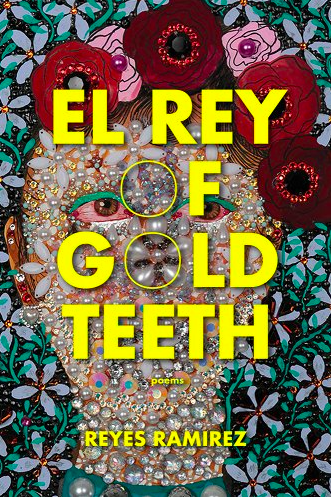Translated by Victoria Cribb — Here on Crime Fiction Lover we’ve been following the career of this Icelandic author since he first appeared in English translation with Snowblind in 2015. That was the first in Ragnar Jonasson’s Ari Thor series, about a small town cop in northern Iceland, and since then the author has gone on to write the Hidden Iceland novels and several standalone titles. The Girl Who Died was chosen by our readers as the Best in Translation winner in our 2021 awards and when Outside arrived for review we couldn’t wait to start reading it.
This is an author who really plays on the frigid, stony cold and isolated atmosphere of the remotest parts of Iceland, and he loves to dial up the claustrophobic nature of the small communities found there. Ragnar Jonasson is carving his own powerful groove in Nordic noir. In Outside, he goes a step further. Here we meet four old college friends who have decided to cut themselves off from the modern world for the weekend, to reconnect with nature and each other, by embarking on a ptarmigan hunting expedition on the vast moors of eastern Iceland.
Nature has other ideas.
While they are hiking to the lands where the ptarmigan flourish, a dense blizzard blows across and they’re forced to seek refuge in one of the emergency huts that have been constructed here and there in the countryside so that lost ramblers don’t have to die of exposure. The tension between these four characters starts to ramp up. Each chapter is written in the third person but from the perspective of one member of the expedition. As events unfold the author cycles between them so we get a very up close and personal idea of who they are, their hopes and fears, their flaws and what they all think of one another.
Ármann is the leader of the expedition. His name sounds a bit like ‘our man’ and he is indeed the manly one. He knows the landscape here because he runs tours in the region and has built up a sizeable company doing so. Rugged, practical and successful, he nevertheless has a shady past and at one time was a drug dealer on the streets of Copenhagen, where he came up against some even shadier people. All that is behind him now. Or is it?
Daníel is the ex-pat in the group. Now an actor, he’s returned from London to spend time and catch up with his old college friends. While he’s good looking and personable, his career and personal life are not in sync with his image. At 30 years of age he has a 19-year-old girlfriend and work is only sporadic. There’s a sense that by moving to the UK, maybe he’s hiding from something. Perhaps it’s the Icelandic wilderness – he certainly isn’t an outdoorsman.
Helena is hardest of the characters to get to grips with. She’s still mourning the death of her boyfriend, Víkingur, five years ago. At first, we don’t know much about how he died but he was alone at the last and sometimes Helena imagines that he is still near and even talks to him. Her grief is too much to bear, but in her interactions with the rest of the group she’s impassive and difficult to read.
Finally, there’s Gunnlaugur. Now a mid-ranking lawyer in Reykjavik, he’s the outsider even amongst this small group – the one who tagged along in the slipstream of the attractive and popular Daníel at college. Nobody quite knows why they’re still friends with Gunnlaugur. He’s pretty reclusive most of the time, has no success with women and is a recovering alcoholic. His questionable side surfaces early in the story, after he makes drunken advances on Helena.
When the group arrive at the shelter hut, the author throws his first big twist at us. The hut isn’t empty and what’s inside throws them into a panic. Existential fear grips one or two members of the group, and cracks appear in the relationships between them. It’s very interesting at this stage to follow the logic of each character as they try to deal with the situation. We get to know them pretty quickly – or at least we think we do. Their problems mount after Helena and Daníel try to walk to another shelter hut closer to the edge of the moor where they can get a mobile phone signal, even though the blizzard is still raging.
As the story unfolds, it becomes harder and harder to like or sympathise with any of the characters. What’s more, they don’t even like each other – to the point where you’ll wonder why any of them went on this trip. There’s little camaraderie or caring between them, no gentleness or sympathy. They tell each other off, argue and order each other around a lot of the time. Their interactions and the revelations about the characters are interesting, but there’s nobody here to root for or empathise with. They are a reflection of the cold, unforgiving landscape – treacherous, even – and there’s no spark of warmth among them.
Psychological thrillers like Outside rely on the drip feed of information from the characters’ narrator to the reader. The author is always going to withhold certain facts so that the story makes an impact in the right places. While the plotting is great, certain key relationships between the characters, which they all know about, are kept back until late in the story. There’s a certain point where you may feel a bit cheated because some basic facts, which explain a lot, only come out late in the story.
The atmosphere is perfectly chilling, the set-up is intriguing and Outside has a strong plot. It’s very minimal – just these four characters to focus on, and everything takes place over the course of one night. The tight, intense scenario gives Ragnar Jonasson’s curveballs added power. The action, when it comes, is brutal and unexpected. It’s also fantastic that this author is willing to branch out and try new things. As with The Girl in Who Died, he gets well away from detective fiction and takes us a lot deeper into the heads of his characters. Outside has a bit of a Patricia Highsmith quality to it. The hurts, insecurities and fears the characters feel drive their actions. I just wanted more to like about them, or one of them at least.
Winterkill, by the same author, comes highly recommended.
Michael Joseph
Print/Kindle/iBook
£9.99
CFL Rating: 3 Stars






